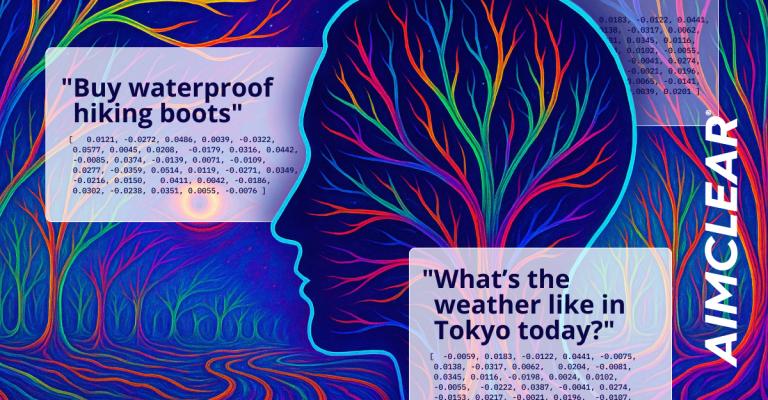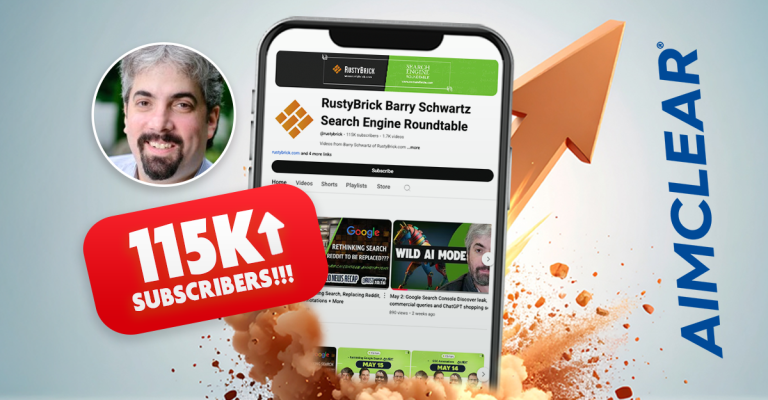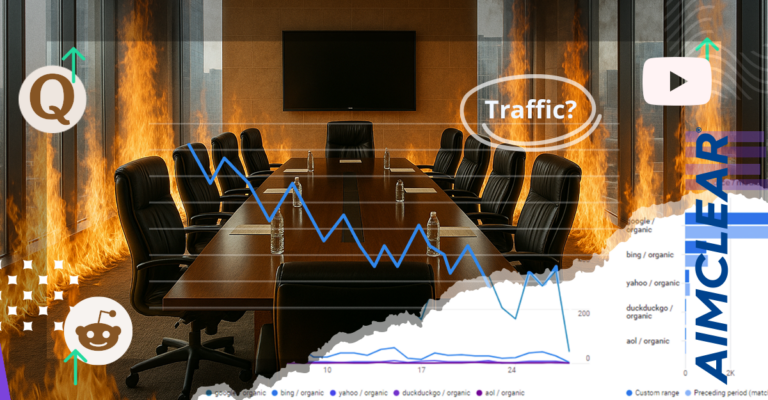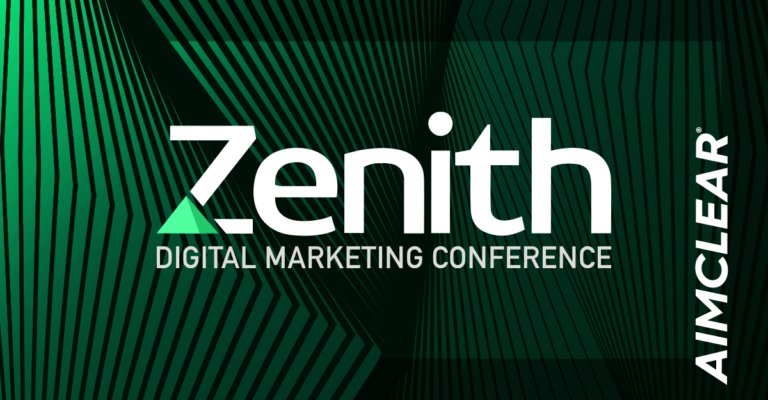Brad Geddes is a fella who’s online marketing legacy often precedes him. A trailblazer on the paths of Google Advertising Professionals and Microsoft adExcellence, Brad is an accomplished author and a familiar face on the search conference circuit. In between writing, teaching, and rocking the house, Brad founded an online consulting company, bgTheory.com, as well as CertifiedKnowledge.org, a training and PPC toolset.
Having seen Brad’s presentations & panel discussions at various past industry conferences, I was well aware of his smarts. It wasn’t until meeting him at an infamous AIMCLEAR/Clix SchmoozeFest extravaganza in the Windy City last year that I got the chance to chat him up– dude’s wicked down to earth (and also a former New Jerseyian!).
As a precursor to AIMCLEAR‘s March Road Trip eastward for Search Engine Strategies New York, I had the pleasure of sharing a candid interview with Brad. Questions ranged from shop-talk to top tips to celebrity death predictions (sort of). Read on for the skinny.
| AIMCLEAR: Brad, you’ve been a fixture in the online marketing landscape for over a decade. How did you initially become invested in this part of the web?
BG: That’s a long conversation in itself – the very short version is that I use to work in the mental health field, which is very long hours and not great pay. One day I got burnt out and decided it was time for a break and a new direction. I had always been a techy and “connected” since the days of bulletin board systems and Usenet. I had designed websites just for fun and personal hobbies (and they were terrible by any standards of today). So I loved technology, and have always been fascinated by the faceless, yet personality driven, communication between users.
One day I was surfing the web and came across this notion of affiliates, and it seemed pretty easy. I had no idea about marketing and still measured “hits” on my sites. Being out of a job at the moment, I decided to try and monetize some of the sites I owned. To my surprise, it worked. Soon afterwards, GoTo.com launched, so I started doing both SEO and PPC for my affiliate sites. Everything I was doing just happened to click fairly well, and people started asking me to help them with their marketing. Finally, I started my first agency a few years later in 2002 and things have just continued to grow ever since.
| AIMCLEAR: That’s pretty cool. And I love that: “…the faceless, yet personality driven, communication between users.” I knew you were a writer, but not a poet 🙂 . Speaking of writing, you authored a highly-regarded book on AdWords, and your legacy with Google AdWords is, frankly, quite epic. Has the evolution of the AdWords & Keyword Tool interface, in your experience, been positive or stifling?
BG: The evolution of AdWords is amazing. When AdWords first launched their CPC model, it was pretty easy to do well without a lot of thought. It did take some work, but pretty much anyone could do a good job if they had decent math and creative skills. AdWords has become incredibly complex over the years to the point where it takes a lot of work to really understand how to create and manage PPC accounts. This is great for agencies and marketers as it ensures they will have a steady influx of new customers; but it has taken its toll on the effectiveness of accounts that are run by part-time marketers. Personally, I like all the new features as there’s a level of control and creativeness you have with this advertising medium that’s never been seen before.
The keyword tool interface changes I find aren’t nearly as useful. The usability is a nightmare (as is AdWords) because of the interface. If you like to view sites in much larger font sizes, the tool is unusable as most of the data becomes hidden and inaccessible. The change in volume numbers from all searches to commercial searches has been difficult to deal with as now you really need a few sets of data to do analysis on informational terms. The tool’s features are good, it’s just the UI and data could be much better.
| AIMCLEAR: Meh. Google Keyword Tool UI “upgrades” mystify me. It’s said that a Brad Geddes hallmark is “demystifying” some of the more intimidating elements of online marketing… what’s your best on-the-fly piece of advice to a new kid on the PPC block?
BG: Determine why you want to advertise. That sounds simple, as most people say: “to make money.” However, it’s not that easy. You need to understand how money flows through your business, how customers move through your buying cycle, look at customer retention, etc. before you can be really effective with advertising.
Once you’ve examined your business model, then you need to set goals for what you want that advertising to accomplish, and you need to be specific based upon your budget and business. The answer “all the new customers I can handle” isn’t a very good one. It’s not specific, does not list a cost per action or ROI, and doesn’t say how you will attain those goals. The more specific you make these answers early on, the easier AdWords is to set up, and then you can refer back to your actual goals when choosing keywords, writing ad copy, and designing landing pages.
I also think all online marketers should know the basics of paid search, SEO, analytics, social, email, and usability. Even if you only focus in just one area, having a basic understanding of the other areas will be highly beneficial as you can see how SEO affects paid search, or understand why a website isn’t converting, and so forth. I find this point is the hardest to get across to online marketers. The paid search people just don’t want to know what a robots.txt file is; yet, an improperly configured one can doom your entire AdWords account. You don’t have to be an expert in every field; you just need to know enough to make sure all the marketing efforts are working towards your company’s goals.
| AIMCLEAR: Care to share any PPC predictions for 2011? (Okay, now how about celebrity hook-ups and/or deaths?)
Google will release even more AdWords features.
Ok, that was a bit of a joke, as its difficult to keep up with the pace that AdWords releases more features.
I think we will see several new innovations from Google in the mobile and video space. Google has won the desktop search war in most of Europe. They are doing very well in the United States. They are going to lose in China. Yandex is winning Russia, etc. There will be some changes in desktop search, but the battles have already been fought, and assuming no one makes any major mistakes, the numbers will fluctuate– but there won’t be any overnight surprises.
The war is only beginning to heat up with mobile. I think we will see a lot of innovation in the mobile space this year. Every year people ask, “Will this finally be the year of mobile?” Personally, I think it’s next year – not this one. The majority of Americans do not own a smartphone (currently, only 1/3 of Americans do own smartphones). That number is quickly changing, and by the end of this year we will be close, if not surpass a 50% smartphone penetration rate in the U.S. A slew of new tablets will hit the market this year, but it’s hard to classify tablets as a mobile device for advertisers because iPad usage patters are closer to desktop usage than mobile. By next year, tablets will be more common, as will smart phones. Therefore, my prediction is this is not the year of mobile – next year will be. Which means, you have only a few months left to get your site working on smartphones.
Three celebrities will unexpectedly die within a week of each other and we will once again have the ‘rule of 3’ debate.
Instead of more predictions, I’ll go with what I hope happens.
Facebook CTRs declined throughout last year while their CPCs went up. That’s not a good combination to win new advertisers. Facebook will find new ways of integrating ads into their site. The new sponsored stories will do well, but they need ads to not just be seen – but clicked. One of the more interesting things Facebook could do is launch a Facebook network where you can target potential customers on non-Facebook properties. That will be a tough sell to publishers as there will have to be a way to backfill ad space to non-logged in users, but that could put some interesting pressure on AdSense.
My real hope for this year is that Microsoft adCenter gets a full handle on the Yahoo traffic and their ad discounter starts to become highly effective across their content network. I hope both adCetner and Google allow advertisers to block specific search partner sites.
| AIMCLEAR: Thanks for the insight. For the record, I don’t even see why that “rule of three” death-debate is even questioned. It’s totally valid. Ah, debates… would you like to see the PPC vs. SEO debate end (finally) or will this always be discussed at search conferences?
BG: Yes, please! Just do both. Neither is worse or better. Search marketing is about controlling real estate on a search page. What would you rather have?
- A single ad or organic listing.
- An ad, an organic listing, a video / image / product ad, and a real time result.
I’ll take the second option every time. I have done extensive studies on paid vs seo and find that when you are on the page multiple times, much better things happen than when you are on a page once.
Let’s just kill this debate.
| AIMCLEAR: I’m with you! Let me just grab my machete. Okay- last Q: what conferences can we hope to see you speak at this year?
BG: I’ll always be at the Advanced AdWords Seminars, as I host all of them. I will probably tour about a dozen cities this year with the seminar series. I’ll be at SES in London next week. I’ll be in Maui for Perry Marshall’s conference in March, and the following week I’ll be in NYC for SES. I expect to be at SMX Advanced in Seattle, Pubcon in Vegas, SES in San Francisco, Affcon in Denver, and probably a few regional ones I’ve not yet put on the calendar.
Of course, the easiest way to find me is to visit the Certified Knowledge forums or site as that’s where I spend the majority of my time.
| AIMCLEAR: Big thanks, Brad, for your time and sharing. See you at #SESNY!








